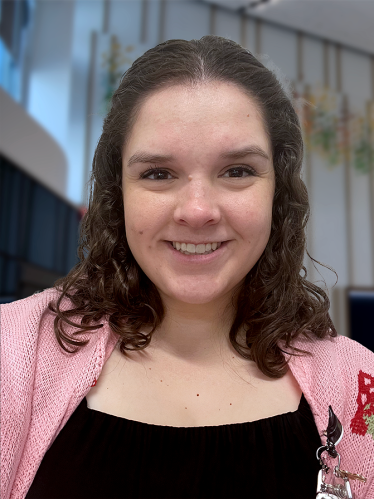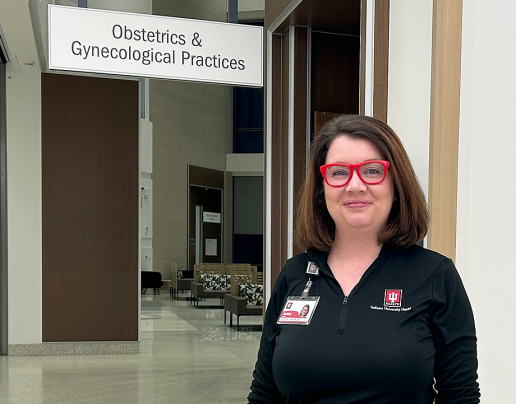Social workers play a significant role in planting the seeds of change for individuals going through challenges, but how much do you know about these essential team members?

“Social workers are in most areas of the hospital,” says Maddy Magyar, MSW, LSW, IU Health Bloomington Integrated Care Management medical social worker. “Our day-to-day activities may differ, but the main role stays the same—we’re here to help patients and families.”

Diana Fox, MSW, LSW, is also in Integrated Care Management and loves how there is no “typical day” for a social worker.
“Every day is a new adventure,” explains Fox, whose duties range from providing community resource information to crisis de-escalation.
She helps patients complete advanced directives, facilitates care conferences between family members and the care team, and helps locate loved ones of ventilated Critical Care Unit patients.
Magyar’s duties cover Labor and Delivery, Postpartum, Pediatrics, the Neonatal Intensive Care Unit and Medical Observation.
“I mostly see newly postpartum mothers,” she says. “My role is to make sure they have everything needed for a new baby and are set up with resources to create a successful home environment.”
She also supports parents during hard times, such as having a child admitted to the NICU or an infant being removed by the Indiana Department of Child Services.

Ashley Beeler, LSW, PMH-C, a social worker with the Bloomington Obstetrics and Gynecology team, often works with outpatients.
“I meet five to eight patients a day for various needs,” she says. “I also have a small caseload of perinatal therapy patients I support here in the clinic setting.”
Beeler’s duties include connecting patients to needs-based resources that set them up for parenting success. She also works on projects to support her local and system teams.
“I think I’m proudest of my work around trauma-informed birth planning,” she explains. “We’ve developed a system between outpatient and inpatient to anticipate cases with higher risk for birth trauma and work with the patient to develop a plan that meets their mental and emotional needs.”
These social workers all work with people experiencing challenges, and they’re dedicated to doing good by serving others and showing compassion.
“I was drawn to social work because I’ve always wanted to help people see there’s hope even when they feel the world has given up on them,” says Fox.
And even if their efforts don’t result in a full resolution, they know they’ve helped provide a starting point.
“The most rewarding and difficult cases I see are domestic violence cases,” explains Magyar. “Postpartum mothers are admitted to the hospital for 2 – 3 days, on average, which doesn’t give a lot of time to solve these complex issues. However, it gives time to validate the victims’ experiences and help them get out of danger.”
“Don’t underestimate the importance of the seeds we’re planting,” says Beeler. “Little things make big differences, and good change moves slow.”
